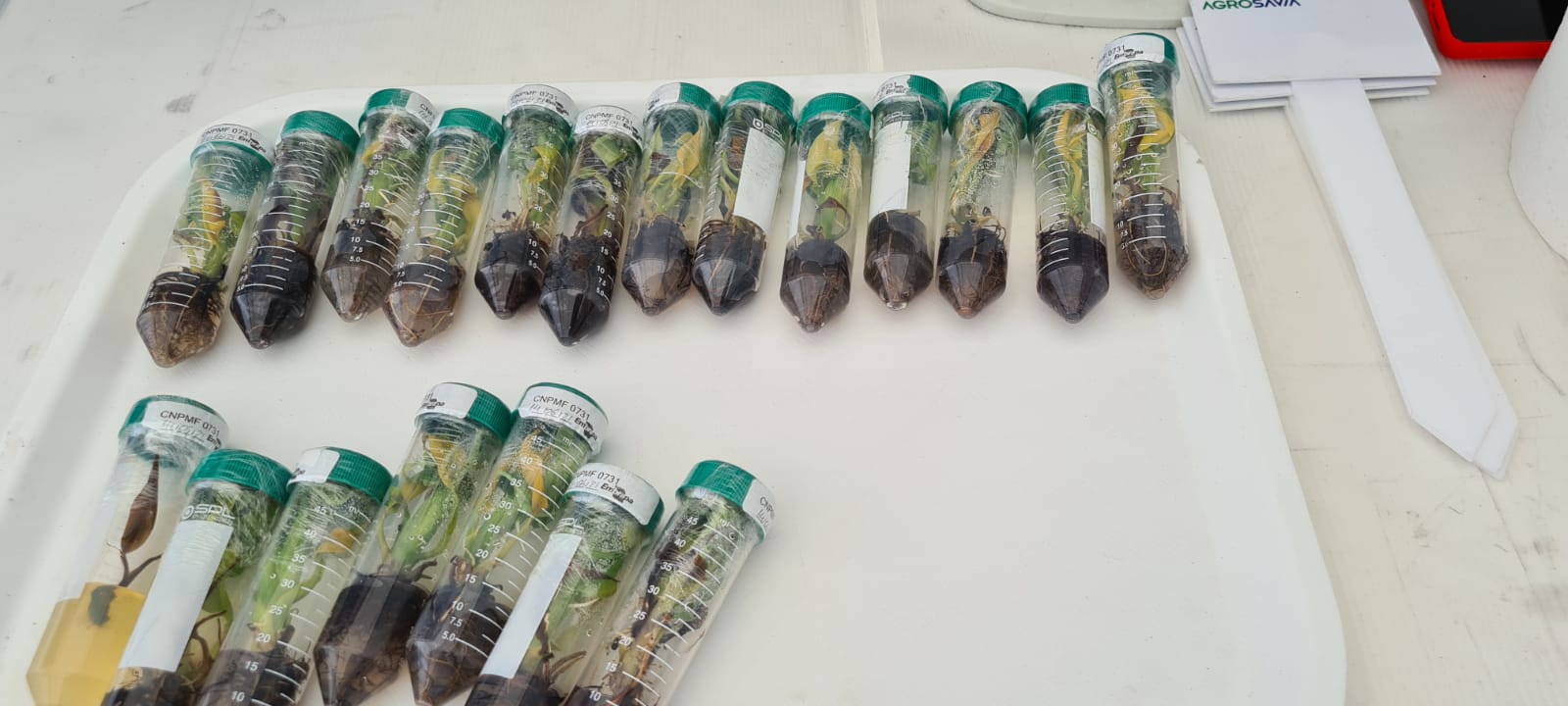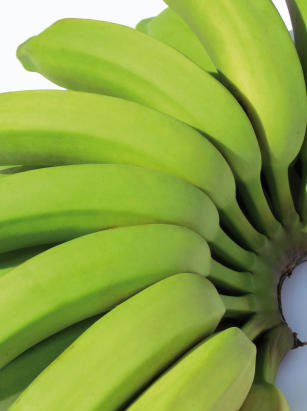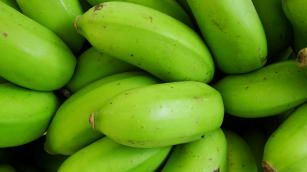Colombia receives Embrapa's banana varieties for testing
Colombia receives Embrapa's banana varieties for testing
In-vitro seedlings of banana varieties, from Embrapa Cassava and Fruits, have arrived in Colombia to test for the presence of Tropical Race 4 of the fungus Fusarium oxysporum f. sp. cubense (Foc TR4), responsible for Fusarium wilt, the most destructive disease for the crop, which still has no definitive control and has been present in that country since 2019.
In addition to the banana varieties BRS Princesa (Apple type) and BRS Platina (Pome type), they were also sent genetically improved banana diploids - ancestral relatives of the current varieties - which are used in crossbreeding aimed at developing new commercial cultivars of the fruit.
The material was planted in the quarantine station of the Colombian Agricultural Institute (ICA), where it will remain for up to six months to confirm the absence of fungi, bacteria, viruses and nematodes in its country of origin. After the quarantine, it will be tested in greenhouses to verify possible resistance to the TR4.
“Colombia is a large exporter of the Apple type of bananas, especially to the United States. They want to test BRS Princesa for the market, since Fusarium has limited the production of Apple cultivars in the country”, explains the researcher Edson Perito Amorim, leader of Embrapa's Banana and Plantain Breeding and Genetic Improvement Program.
The activity is part of a research agreement between Embrapa, Corporación Colombiana de Investigación Agropecuaria (Colombian Agricultural Research Corporation) – AgroSavia , and the Asociación de Bananeros of Colombia (Association of Banana Producers of Colombia) – Augura, a non-profit organization that since 1963 has gathered banana growers and traders from Antioquia and Magdalena, areas that produce the fruit for the international markets.
“This work is a fundamental part of the preventive breeding strategy that we are carrying out at Embrapa. Our gene bank material went to a country where the disease is present and where we have a project. Then we will be learn in little time if we have genotypes that are resistant to race 4, and close up the breeding cycle. The submission of BRS Princesa and BRS Platina is also very important for Brazil, as it would demonstrate resistance to a disease that can cut through our borders”, he asserts.
A similar action was recently performed with research institutes from Australia and Costa Rica. The goal of these tests is to guide Embrapa in the use of resistant diploids in crossbreeding, and allow the development of resistant commercial cultivars, especially the Pome type, which is the one most frequently grown in Brazil.
Fusarium wilt
The fungus can strike through different means: contaminated soil brought in shoes, tools, banana seedlings (visually healthy, but infected) and ornamental plants, which can also be hosts.
The research already developed by Embrapa in the areas of breeding and genetic improvement and disease management concerning the existing races in Brazil are landmarks in case there is a TR4 outbreak in the country. Embrapa monitors populations of the pathogen in the Brazilian territory, which will help in the selection and recommendation of varieties and if an infection focus is detected.
The disease already occurs in Australia, Phillipines, Malaysia, Indonesia, Taiwan, China, Oman, Jordan, Mozambique, Colombia and Peru, where a focus was identified in 2020. The presence of the pest in two neighboring countries with strong commercial and friendship ties leaves Brazil in a permanent state of alert.
Léa Cunha (DRT-BA 1633)
Embrapa Cassava and Fruits
Press inquiries
mandioca-e-fruticultura.imprensa@embrapa.br
Phone number: +55 75 3312-8076
Translation: Mariana Medeiros (13044/DF)
General Secretariat
Further information on the topic
Citizen Attention Service (SAC)
www.embrapa.br/contact-us/sac/



